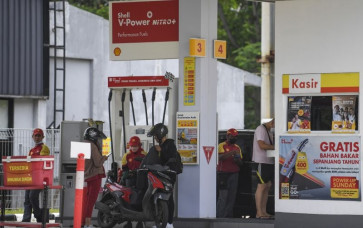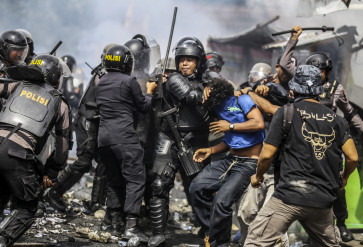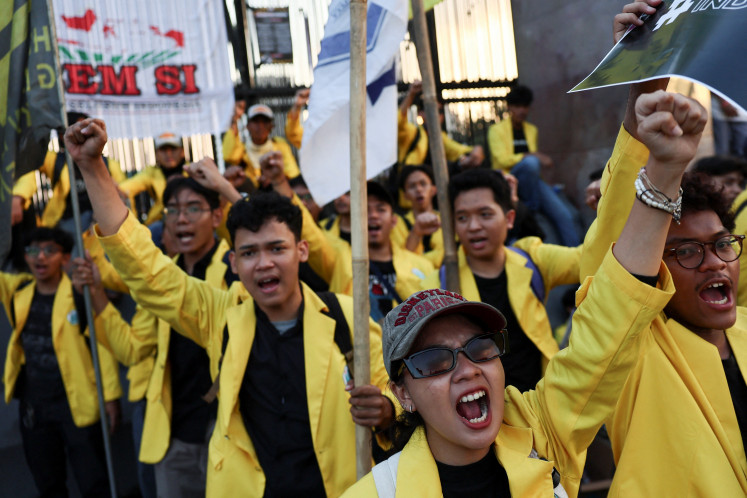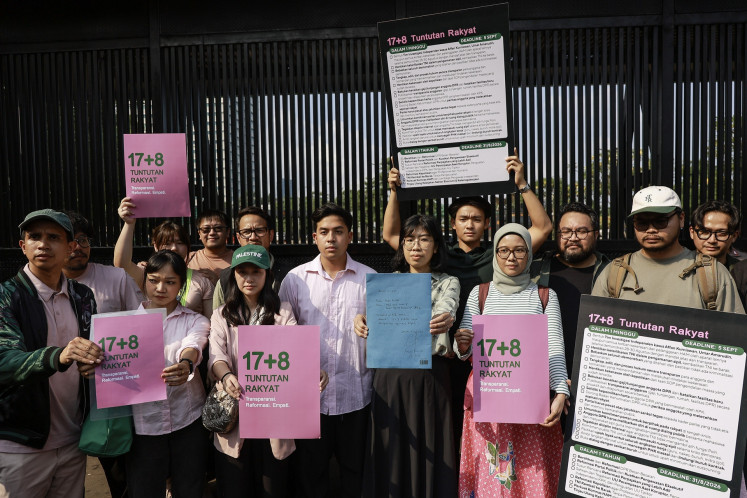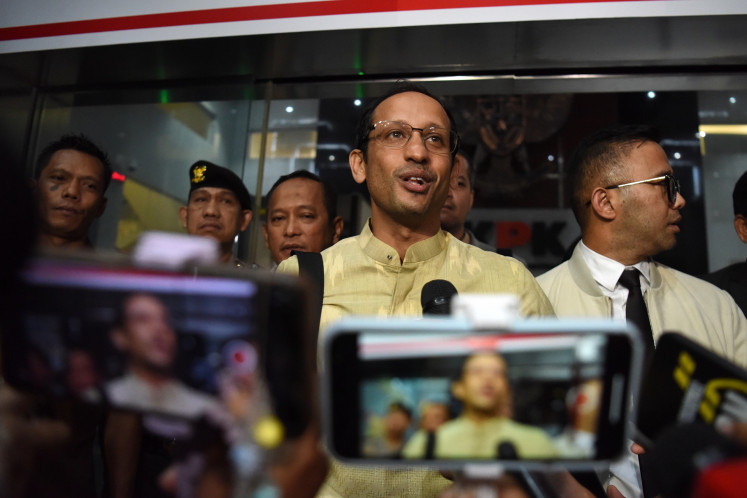Popular Reads
Top Results
Can't find what you're looking for?
View all search resultsPopular Reads
Top Results
Can't find what you're looking for?
View all search resultsEditorial: Regulating forex flows
Just as freedom of speech does not necessarily allow someone to shout fire in a crowded cinema, our open capital account doesn't mean depositors or investors can trample each other in a stampede out of rupiah assets
Change text size
Gift Premium Articles
to Anyone
Just as freedom of speech does not necessarily allow someone to shout fire in a crowded cinema, our open capital account doesn't mean depositors or investors can trample each other in a stampede out of rupiah assets.
This is the perspective from which we see the latest central bank's regulation requiring Indonesian citizens and companies wanting to buy more than US$100,000 in foreign currencies to produce documents of underlying transactions and taxpayer registration numbers.
The rupiah has been under speculative attacks the past three weeks -- sometimes falling to as low as Rp 12,000 to the U.S. dollar which represents a depreciation of almost 15 percent -- due to the impact of the bearish sentiment in Asian financial and stock markets.
Bank Indonesia's (BI) Governor Boediono is right in asserting on Wednesday that the ruling is by no means a form of foreign exchange control as Indonesian and foreign citizens and entities remain free to purchase foreign currencies through spot, forward or derivative transactions as long as they are supported with underlying transactions as payments for imports and other business deals such as dividend repatriation.
Indonesia, as Boediono reaffirmed, continues to strongly uphold its free foreign exchange regime. The new measure is designed only to regulate foreign exchange flows and minimize foreign exchange speculations or the purchase of foreign currencies without underlying transactions.
The regulation also will address a greater concern that big depositors may convert their savings into foreign currencies for transfer to banks in Singapore or Malaysia, as these countries provide a blanket guarantee on all deposits at their banks while Indonesia guarantees only up to Rp 2 billion (US$166,000) in deposits.
We are totally against any forms of direct foreign exchange control as this draconian move would simply set off panic. Moreover, such a control is difficult to administer because technological innovations -- such as new financial instruments -- allow for easier circumvention of capital controls.
Inadequate institutional capacity within our government -- notorious for being one of the most corrupt in the world -- makes the implementation of control on foreign exchange flows highly problematic and vulnerable to abuse.
The latest measure is one of several regulations issued by the central bank to manage foreign exchange flows in a more orderly manner.
There have been several regulations in place which essentially facilitated a more effective monitoring of foreign exchange transactions by BI. Commercial banks, for example, have long been required to report to BI any foreign exchange transactions in excess of $10,000.
In 2005, the central bank limited foreign exchange derivative transactions with foreign parties against the rupiah to a maximum of $1 million and capped dollar purchases in outright forward transactions and swaps at $1 million.
The central bank also has imposed a three-month minimum investment hedging period on foreign exchange transactions. This means that investors with underlying investments in Indonesia must keep their funds in the country for at least three months. Hedging transactions subjected to this new regulation include outright forward transactions, swaps and call and put options.
These moves aim to prevent a wild volatility of the rupiah by reducing the speculative element in the currency market and, among other things, by decreasing the inflow of hot money to the country.
But we wonder why BI still does not impose more stringent restrictions on short-term (hot) capital inflows to minimize our exposure to the risks of sudden reversals of hot money as we have seen over the past month.
Several countries, for example, have imposed taxes on capital flows which stay for less than one year and severely restrict foreign exchange flows without any underlying transactions such as export, import or legitimate business payments.
The international reserves held by the central bank, though already down from $60 billion as of August to below $51 billion early this month, are more than adequate to meet foreign exchange needs for ordinary business payments.
But BI still needs to ensure more orderly foreign exchange flows because these reserves are certainly not sufficient to cope with a constant and massive stampede by jittery investors and depositors out of the rupiah for days or weeks.


